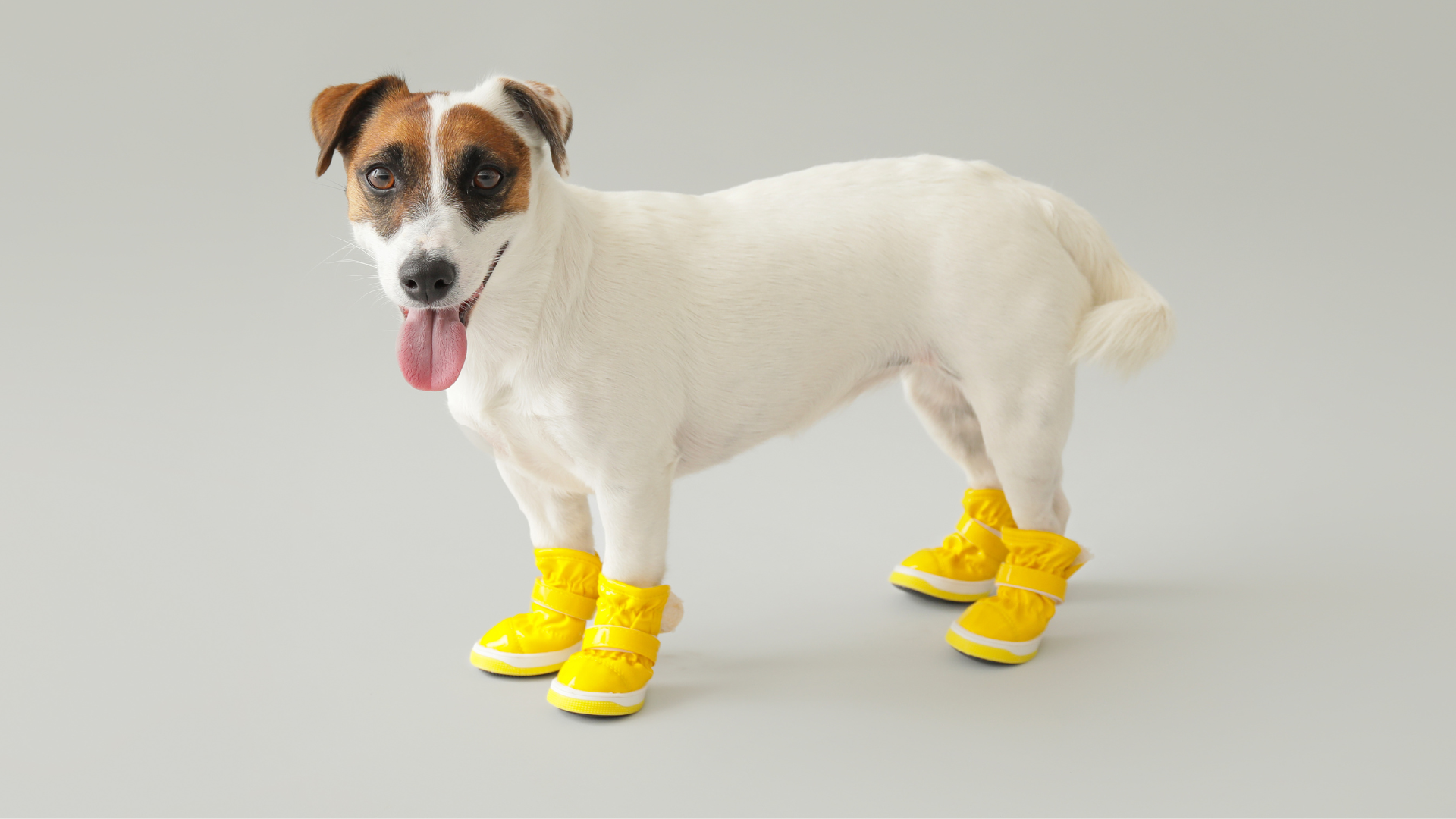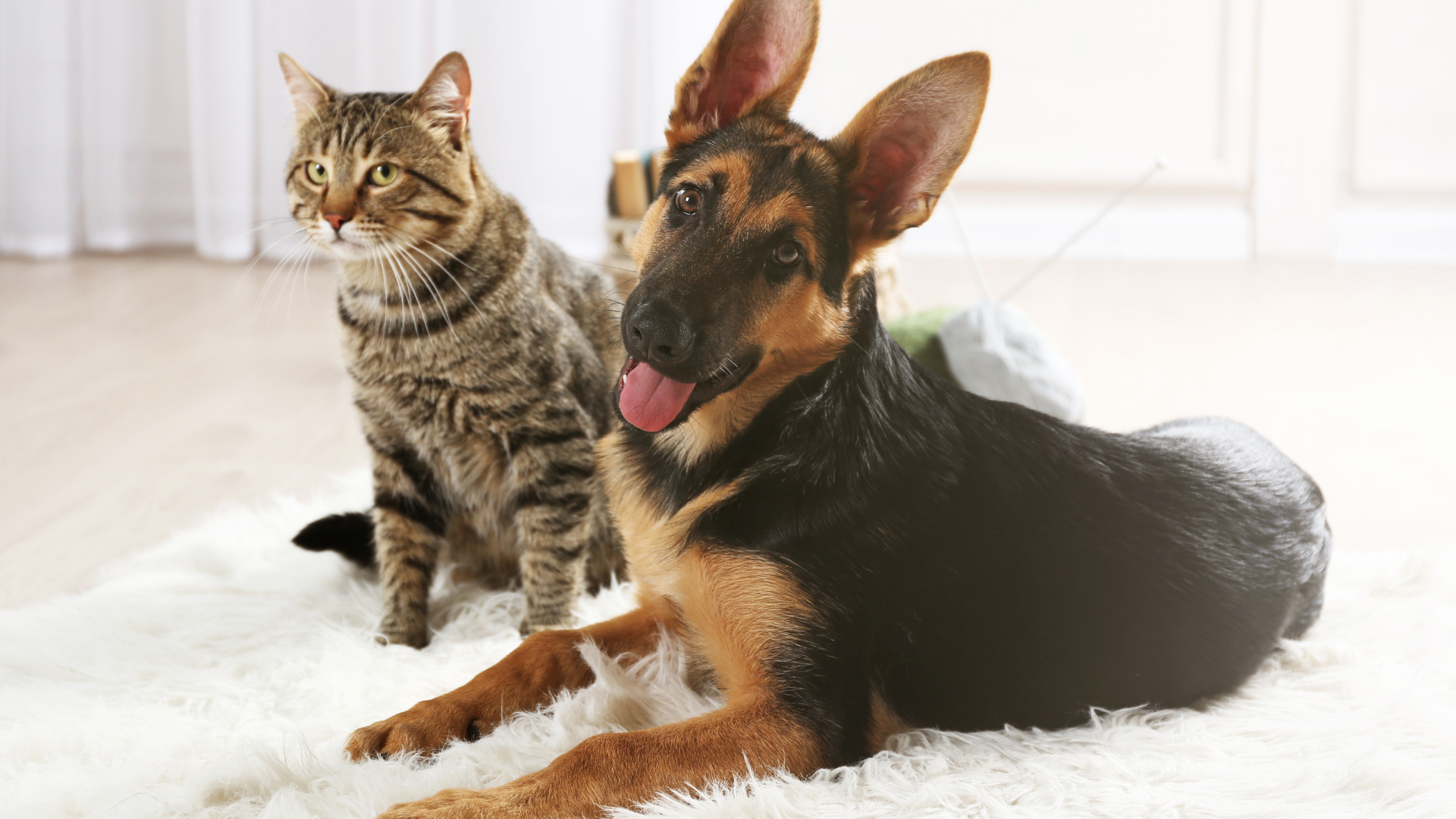The Fascination with Dogs Howling at Sirens
If you’ve ever been driving or sitting at home when an ambulance, fire truck, or police car rushed by, you may have noticed your dog tilting their head back and letting out a long, dramatic howl. While some pet parents find this endearing or even funny, others worry or wonder why it happens at all. Interestingly, not all dogs react this way—some howl instinctively at sirens, while others remain completely unbothered.
This curious behavior has both scientific and instinctual explanations. By understanding why some dogs howl at sirens (and others don’t), pet parents can better interpret their dog’s behavior, manage anxiety when needed, and even embrace it as a natural part of canine communication. For more insights into quirky dog behaviors, check out the Good Natured Brand Blog.
The Science of Dogs Howling at Sirens
Dogs’ senses are remarkably different from ours—especially their hearing. A dog’s ears are finely tuned to detect high-pitched sounds at frequencies well beyond the human range. Sirens, whether from ambulances, police cars, or fire trucks, produce loud, piercing tones that fall within a dog’s sensitive hearing spectrum.
To many dogs, a siren doesn’t sound like an artificial alarm but rather resembles the howl of another dog in the distance. Their instinctual response is to “join in” the chorus, as if answering a distant call. This explains why the behavior is so common across breeds, though not universal.
Evolutionary Roots of Howling in Dogs
The howling response to sirens is deeply rooted in canine ancestry. Wolves, coyotes, and wild dogs use howling as a primary form of long-distance communication. A howl can signal territory, call pack members back together, or warn of danger.
Domestic dogs, though far removed from their wild ancestors, still carry this instinct. When a siren wails in the distance, it may mimic the high-pitched call of a pack member, triggering your dog to respond. In this sense, howling at sirens is less about noise irritation and more about an ancient social behavior passed down through generations.
Why Some Dogs Howl at Sirens and Others Don’t
One of the most puzzling aspects of this behavior is that not all dogs react the same way. Several factors influence whether a dog howls at sirens:
-
Breed differences: Certain breeds like huskies, beagles, malamutes, and hounds are genetically predisposed to howl more often. These breeds were historically bred for hunting or sled pulling, where howling helped with communication.
-
Temperament: A naturally vocal or expressive dog is more likely to howl, while a calm, stoic pup might stay quiet.
-
Exposure and desensitization: Dogs who hear sirens regularly in busy cities may stop reacting, while suburban dogs might find sirens more novel and engaging.
-
Personality and bonding: Some dogs howl to mimic their owners’ excitement or as a way to bond socially.
In short, howling at sirens is influenced by both instinct and individuality.
Sirens as Communication Triggers
Dogs are expert communicators through sound. When they hear a siren, they may interpret it as another canine’s call. By howling back, your dog is essentially saying: “I hear you, and I’m here!”
This explains why dogs often start howling as soon as the siren begins and stop once it fades into the distance. They’re treating the sound as part of a back-and-forth communication. Interestingly, some dogs even howl at TV shows or music that mimic similar high-pitched tones, showing how sensitive they are to sound triggers.
Emotional Responses: Fear vs. Excitement
Not all howling is purely instinctual. For some dogs, sirens may trigger emotional responses.
-
Fear or anxiety: Dogs with sensitive temperaments may howl out of stress, accompanied by pacing, hiding, or whining.
-
Excitement or playfulness: Other dogs may treat sirens as exciting stimuli, tail wagging and hopping while they howl.
Understanding your dog’s body language is key. If their howling is paired with tension or distress, it may signal anxiety that needs management. If it’s paired with playfulness, it’s likely harmless instinct.
Dogs That Stay Silent During Sirens
While many dogs howl at sirens, an equally large number remain unaffected. Silence doesn’t mean anything is “wrong” with your dog—it simply means they don’t feel compelled to respond.
Some possible reasons include:
-
Desensitization: Dogs living in noisy cities may learn to tune out constant sirens.
-
Personality: Independent or quiet dogs may not be motivated to howl.
-
Breed traits: Breeds bred for guarding or herding may bark instead of howl, or remain watchful without vocalizing.
Just as some humans are more talkative than others, the same goes for dogs. Silence is simply their version of “opting out” of the conversation.
Risks of Siren-Triggered Anxiety
For most dogs, howling at sirens is harmless. But for others, it can be a source of anxiety or distress. Signs your dog may be stressed include:
-
Pacing or restlessness when sirens pass.
-
Excessive whining, barking, or trembling.
-
Hiding or seeking comfort from you.
If howling at sirens seems linked to stress rather than play, it’s worth taking steps to ease their anxiety. Creating a safe, calm environment at home is the first step—closing windows, playing soothing sounds, and maintaining a clean, fresh space with eco-friendly products like All-Purpose Cleaners for surfaces, Laundry Powders for pet bedding, and Carpet Deodorizers for rugs can make your home a more peaceful sanctuary when outside noises feel overwhelming.
Should You Encourage or Stop Dogs from Howling at Sirens
For many dogs, howling at sirens is completely harmless. It’s a leftover instinct from their wolf ancestors and, in some cases, a way of “singing along.” If your dog howls briefly when a fire truck passes, there’s usually no reason to stop them—it can be a fun quirk of their personality.
However, if howling is excessive, happens at all hours, or is tied to stress and anxiety, you may want to manage or redirect the behavior. The decision depends on whether the howling is playful, disruptive, or distressing for your dog.
Training Tips for Dogs That Howl at Sirens
If your dog’s howling becomes disruptive, training can help minimize it. Positive reinforcement is the most effective method.
-
Teach the “quiet” command: When your dog howls, wait for a pause and immediately reward them with praise or a treat. Over time, they’ll learn that being calm earns rewards.
-
Redirect with toys or treats: Before sirens reach their loudest point, distract your pup with a favorite toy or puzzle feeder.
-
Practice desensitization: Play siren sounds at a low volume and gradually increase the level over time, rewarding calmness at each stage.
Consistency and patience are key. Training should never involve punishment, as this may increase anxiety or confusion.
Helping Anxious Dogs Who Howl at Sirens
For dogs that howl because they’re frightened, anxiety management is essential. Instead of discouraging their behavior outright, focus on reducing stress.
-
Safe spaces: Provide a quiet area, like a crate with blankets or a corner of the home where they feel secure.
-
Calming aids: White noise machines, calming music, or even dog-safe pheromone sprays can help mask siren sounds.
-
Comforting routines: Dogs find reassurance in predictable daily routines, which can offset sudden stress from outside noises.
Keeping their environment clean and fresh also contributes to a sense of calm. Wash dog blankets regularly with Laundry Powders to remove lingering odors, and use Carpet Deodorizers if your pup tends to pace or rest on rugs during noisy moments.
Environmental Management: Keeping a Calm Home
Sometimes, simple adjustments to your home environment can make a big difference in how your dog reacts to sirens.
-
Close windows and curtains during peak traffic hours to muffle outside noise.
-
Play background sounds like soft music, nature tracks, or white noise to distract from sirens.
-
Maintain a tidy, odor-free home so your dog has a soothing environment to retreat to. A clean space can reduce overall stress levels.
Regularly wipe down surfaces and hampers with All-Purpose Cleaners to keep your home both pet-safe and inviting.
Cleaning Tips for Homes with Vocal Dogs
Howling can sometimes come with drooling, pacing, or scratching, which can leave behind messes. Establishing a cleaning routine makes it easier to manage these side effects:
-
Neutralize odors: Sprinkle Carpet Deodorizers on rugs and carpets to keep them fresh.
-
Freshen fabrics: Wash pet bedding, throws, or toys in eco-friendly Laundry Powders.
-
Disinfect safely: Clean windowsills, doors, and other areas your dog may paw at during excitement with All-Purpose Cleaners.
These steps ensure that even if howling sessions get a little messy, your home stays fresh and welcoming.
Breed-Specific Considerations
Not all dogs are equally likely to howl at sirens. Understanding breed tendencies can help set expectations.
-
Huskies and malamutes: Known for dramatic, wolf-like howls that may be triggered easily.
-
Beagles and hounds: Bred to vocalize during hunts, making them more prone to siren howling.
-
Guard breeds: Dogs like German shepherds or Dobermans may bark instead of howl, signaling alertness.
-
Small breeds: Many toy breeds may ignore sirens altogether, preferring silence or simple curiosity.
Breed tendencies don’t guarantee behavior, but they can explain why your dog reacts the way they do.
Fun Facts: Dogs Howling Along with Music or TV Sirens
Sirens aren’t the only sounds that trigger howling. Many dogs also react to instruments, TV shows, or songs that mimic siren-like tones.
-
Some dogs “sing along” when owners play the piano or sing.
-
Others react to TV shows or movies featuring sirens.
-
Viral videos of “howling choirs” show just how playful this instinct can be.
If your dog’s howling feels more like entertainment than stress, it can be a fun bonding activity to enjoy together.
When to Consult a Veterinarian or Behaviorist
While howling at sirens is usually harmless, there are times when professional help is recommended.
-
Excessive howling: If your dog howls constantly at any high-pitched noise, not just sirens.
-
Signs of separation anxiety: Destructive chewing, pacing, or howling when left alone.
-
Health concerns: Sudden or unusual vocalizations may indicate pain, hearing loss, or other medical issues.
A veterinarian or certified dog behaviorist can help determine whether your dog’s siren response is normal or a symptom of something more serious.
Embracing the Mystery of Dogs and Sirens
Howling at sirens is a mix of science, instinct, and personality. Some dogs feel compelled to join the chorus, while others stay silent, unfazed by the wail of emergency vehicles. For many, it’s simply a harmless echo of their wolf ancestry.
As pet parents, the best approach is to embrace the behavior when it’s playful, redirect it when it’s disruptive, and manage it carefully when it’s tied to stress. Keeping a calm, clean home environment also helps your pup feel secure, especially during noisy moments.
Eco-friendly solutions like Carpet Deodorizers, Laundry Powders, and All-Purpose Cleaners make maintaining a fresh space simple while staying safe for pets.
For more pet-friendly lifestyle insights and natural cleaning tips, visit the Good Natured Brand Main Page and explore the Good Natured Brand Blog.


















